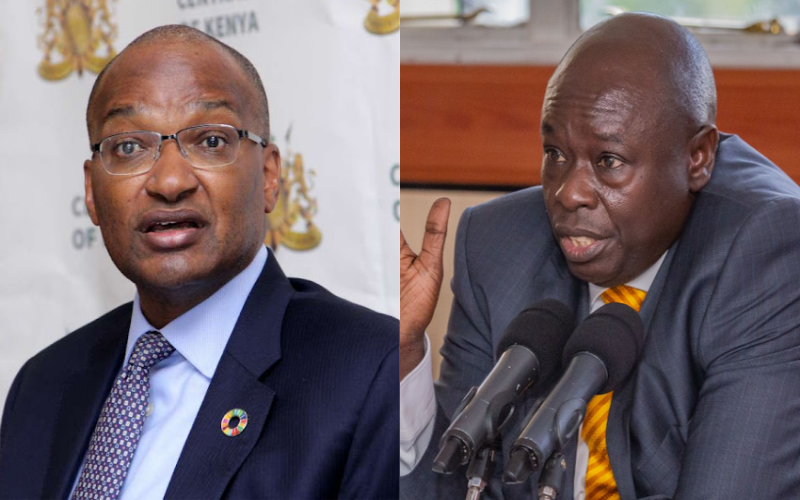
The Central Bank of Kenya in a midnight press release came out to correct sentiments made by Deputy President Rigathi Gachagua on Sunday , October 2 during an interview on Citizen TV where he said that the country did not have enought foreign exchange reserves to import oil on Saturday, October 1.
The monetary authority in its statement shared on its social media accounts clarified its position on the matter, stating that in fact there was enough foreign exchange cover as it only supplies foreign exchange for only National Government transactions, and not for commercial use such as oil importation.
"Following the complete liberalition of the foreign exchange market in the 1990s, all foreign change for private transactions is otamed from commercial banks. CBK does not supply foreign exchange for transactions other than for the National Government (ie, government's own imports or debt service payment) or CBK'S operations.
Oil importers ,therefore, obtain their requisite foreign exchange from the commercial banks and not the CBK," the statement read.
CBK further pointed out that it always maintains a reserve of external assets of a value of not less than four months that provides cover in the event of shocks in the foreign market.
"The Central Bank of Kenya Act (Section 2) requires that CBK at all times use it best endeavours to maintain a reserve of external assets at an aggregate amount of not less than the value of four mother imports as recorded and averaged for the last three preceding years. This stood at 4.64 months of imports as at September 26, 2022," the authority noted.
The authority also stated that the country's usable foreign exchange reserves were keenly monitored to cushion against fluctuations in the foreign exchange market.
"CBK also monitors it's usable foreign exchange reserves. These stood at USD 7434 million (4.19 months of import) as at September 29, 2022," CBK clarified.
This was after DP Gachagua detailed the dire situation of Kenya's economy with the claim that the Central Bank of Kenya was not able to avail enough foreign exchange for oil imports which he blamed on the previous administration's looting in the last three months before President William Ruto assumed power.
This according to him was the result of fuel subsidies that dug into the reserves, plunging the country's economy further into crisis which hence resulted in a cash crunch that forced Kenya to rely on borrowing.
"That's why stopped the fuel subsidy program, we were spending Kshs 20 billion every month. If we continued like that , we would not be able to pay salaries, import ommodites like oil or even food. The situation is dire but there is hope" he assured Kenyans.
The DP assured that the new administration was working to undo the mess in the economy, with its first priority set to uplift the agricultural sector to increase food production.
By Fridah Wangechi | 1 year ago
By Fridah Wangechi | 1 year ago